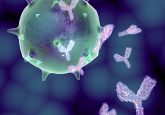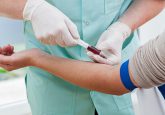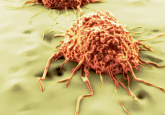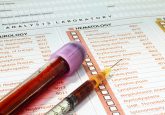‘Mutation-tracker’ blood test could provide early-warning for cancer relapse

Researchers at the Institute of Cancer Research (UK) and the Royal Marsden NHS Foundation Trust (UK) have developed a blood test that can uncover residual therapy-resistant cancer DNA in the bloodstream. The test can identify which patients will relapse after treatment, months before tumors are visible on hospital scans.
The team was able to track key mutations in the cancer cells without the need for invasive biopsy. Their aim is to decipher key DNA data from the blood samples to identify mutations likely to prove lethal, allowing treatment to be tailored to the patient.
Researchers took tumor and blood samples from 55 early-stage breast cancer patients who had received chemotherapy and surgery, and who could potentially have been cured. By monitoring patients after surgery and every 6 months after, the researchers were able to accurately predict relapses. Those women who tested positive for circulating tumor DNA were over 10 times more likely to relapse, with the return of their of their cancer detected on average 7.9 months before any visible signs were detected.
The study could be an important step towards the use of so-called ‘liquid biopsies’ in breast cancer care, and could change the way cancer is monitored and treated. Researchers used a technique called mutation tracking, developing a digital PCR test personalized to an individual patient’s cancer, capable of identifying tumor DNA in the blood. As the team was looking for mutations common to many types of breast cancers, they found that the test could be applied to all breast cancer subtypes.
The research also demonstrated that genetic mutations build up in the cancer over time, as leftover cancer cells grow and spread. This reinforces the importance of early detection of recurrence, as any delay in treatment can result in additional mutations making the disease harder to treat.
Study leader Nicholas Turner explained: “We have shown how a simple blood test has the potential to accurately predict which patients will relapse from breast cancer, much earlier than we can currently. We also used blood tests to build a picture of how the cancer was evolving over time, and this information could be invaluable to help doctors select the correct drugs to treat the cancer.”
Paul Workman, Chief Executive of the Institute of Cancer Research concluded: “Studies like this also give us a better understanding of how cancer changes to evade treatments – knowledge we can use when we are designing the new cancer drugs of the future.”
Sources: New ‘mutation-tracking’ blood test could predict breast cancer relapse months in advance; Garcia-Murillas I, Schiavon G, Weigelt B et al. Mutation tracking in circulating tumor DNA predicts relapse in early breast cancer. Sci. Transl. Med. 7(302), 302ra133 (2015).






